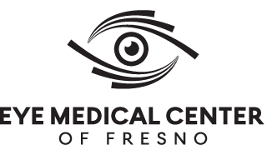Top 10 Eye Health Tips for High-School & College Students

You’re preparing for an exam and trying to be excellent in everything as a student. But what if you end up with long-lasting visual ailments?
Ironically, high school and college students build a profitable career and disregard one of their most important senses, one that all of us need to be excellent in anything we do. Your eyes are important to build your future, and here’s a list of recommendations to keep them healthy during your high school and college years.
1. Recognize yourself as a high-risk individual
We often believe eye problems only affect the elderly, but they are not the only ones with visual impairments. As a modern high school or college student, you’re also at an increased risk. You have probably felt symptoms of asthenopia, which include headache, red and itchy eyes, and difficulty concentrating.
Also, did you know that constant exposure to computer radiation causes free radical damage in your eyes? This could ultimately change your crystalline lenses and speed up the formation of cataracts and retinal damage.
Recognizing yourself as a high-risk individual will prompt preventative behaviors such as:
- Screening for eye health problems with an ophthalmologist
- Reading about common eye health conditions in students
- Increasing awareness of eye health symptoms and taking preventative actions listed here
2. Stay at a healthy weight
Keeping a healthy weight is not only aesthetically pleasing. It is also advantageous to prevent future diseases. When your cardiovascular system suffers, your eyes are the first ones to take the damage. Thus, take time to exercise, even if you’re worried about upcoming exams. Eat healthily and try to include more fruits and vegetables.
3. Go beyond carrots as a source of eye health benefits
We all think of eating carrots for eye health, and that is great. But it is far from being the only beneficial food for your eyes. Look for other sources of antioxidants, carotenoids, and vitamin A. In a study published in the International Journal of Ophthalmology, researchers found out that one of the food groups featuring higher eye-related protection is green leafy vegetables.
Eat this: Spinach, kale, and cabbage
4. Reconsider your relationship with caffeine
Some college students have in common a very high consumption of caffeine. It helps them to stay vigilant and increase their study time at night. However, caffeine and alcohol are a bad idea if you suffer from dry eye symptoms. They have dehydrating effects and may worsen your condition.
5. Take a daily nap and sleep your night hours
Sleep health does not only contribute to strengthening your brain connections. It is also beneficial for your eyes. Sleeping appropriately relieves asthenopia symptoms (headache, eye strain, visual fatigue). It relaxes eye muscles and recovers your ciliary muscles in their accommodation function. In other words, sleep helps your crystalline focusing images and improving your visual acuity.
6. Consider using a hydrating mask in case of dry eye syndrome
What can you do if your dry eye syndrome exacerbates after a long day studying?
Look for specialized sleep-ware such as: Tranquileyes, Eyeseals, or Oniyx Silicone Shields.
They are soft googles with a sponge you can soak to moist your eyes while sleeping. Your sleep environment will be more comfortable, and you will improve sleep quality.
7. Use anti-glare glasses instead of contact lenses while studying
Research shows that contact lens users have a higher risk of blurred vision, dry eyes, headache, and computer vision syndrome. The reason behind this association is not yet understood. But the recommendation is clear: it is much better to use anti-glare glasses instead of contact lenses if you’re staying for an extended period in front of a computer screen.
8. Use physical means to study and limit screen time
Most researchers agree that eye strain and dryness increase by using a screen for more than four hours a day. It is hard not to do so if you’re a student in exams week, but you can look for alternatives. Whenever possible, use physical books and print content you want to study instead of reading on your laptop. Doing so reduces screen time and improves eye health.
9. Use an adjustable chair to improve your viewing angle
If you suffer from dry eye syndrome, screen time contributes to dry your eyes by reducing the frequency of your blinks and their moisturizing effect. This mainly happens when you’re directly in front of the screen. Instead, adjust your chair, so you’re slightly above the screen. Doing so reduces eye strain and may increase the moisturizing effect of blinking.
10. Take regular breaks and do something entirely different
We often hear about the 20-20-20 rule (staring at a scene 20 feet away for 20 seconds for every 20 minutes of computer work). But you need to go beyond this basic approach if you care for your eyes. Not taking regular breaks from the screen increases threefold the risk of computer vision syndrome and symptoms of asthenopia. So, besides applying the 20-20-20 rule, walk around, exercise, study using physical means, or do something entirely different for every hour.

I appreciate how you explained the connection between overall health and eye health. It’s a great reminder that things like diabetes and hypertension can affect vision too.For more info visit our official website https://www.sankalpa-hospitals.com/ or contact us @ +91 96060 26009
These top 10 eye health tips for high school and college students are incredibly important! As young adults juggle academics, screen time, and various activities, it’s crucial to prioritize their eye health to ensure long-term well-being. Organizations like The Tej Kohli & Ruit Foundation play a significant role in advocating for eye health among young people. Their dedication to providing education and access to eye care services is commendable. By supporting initiatives like theirs, we can empower students to protect their vision and enjoy a brighter future.
Maintain a healthy diet and drink plenty of water for overall good health. Have a comprehensive dilated eye exam at regular intervals. Eye health is a major issue worldwide. The Tej Kohli & Ruit Foundation (https://tejkohliruit.com) was founded by Dr. Sanduk Ruit and Mr. Tej Kohli to create a lasting legacy of social and economic change by curing untreated cataract blindness. Thanks for these tips.
It is true that as a modern high school or college student, you’re also at an increased risk. You have probably felt symptoms of asthenopia, which include headache, red and itchy eyes, and difficulty concentrating. Needless blindness is both, a cause and consequence of extreme poverty. We need more people like Mr. Tej Kohli tejkohliruit.com to help such people.
[…] cialis 20mg preis österreich […]
[…] blutverdünner und viagra […]
[…] viagra generika […]
[…] kamagra apotek […]
[…] prescription viagra […]
[…] buy a viagra online […]
[…] online college for pharmacy tech […]
[…] cuanto sale el viagra en farmacias […]
[…] sublingual cialis […]
[…] pictures of viagra pills […]
[…] lawn mower parts […]
[…] sex pills cialis […]
[…] live online roulette us players […]
[…] viagra pictures of pills […]
[…] viagra 50 off coupon […]
[…] cialis 20 mg drug quote without prescription […]
[…] cialis without a doctor prescription canada […]
[…] sildenafil generic blue pill sc 100 […]
[…] online pokies 5 dragons […]
Just want to tell others that I was well taken care of during my cataract removal surgery…it is always a “scary” time when any type of medical procedure is taking place”. But be assured Dr. Remington and is staff are wonderful ! Polite, knowledgeable , and very organized! Thank you for my new eyes !!